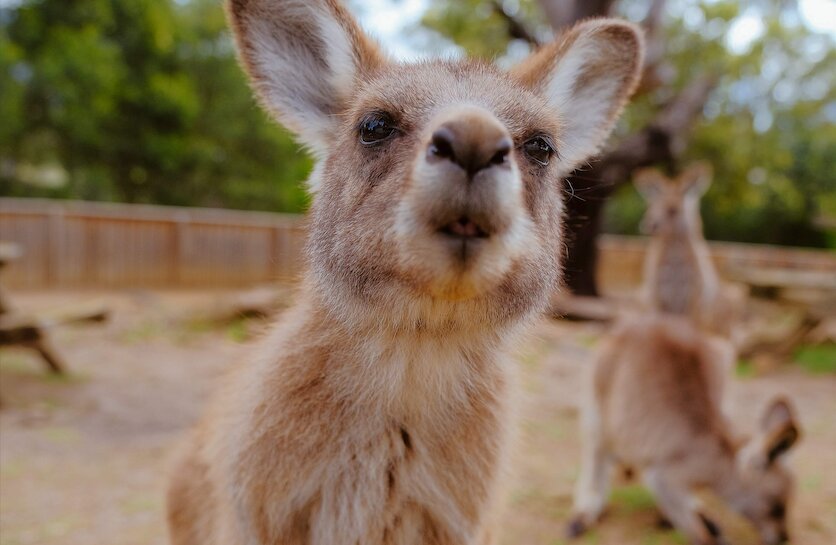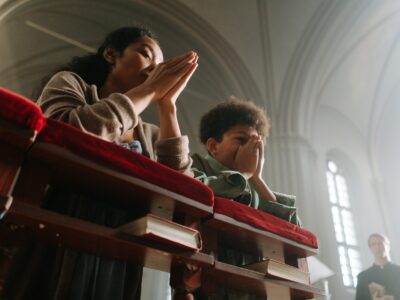Much like North America, there are large swathes of countryside in Australia untouched by city lights and street signs, tucked-away places where only the kangaroo, dingoes, and wombats roam (along with some of the most venomous creatures God placed on the planet).
About 140 million years ago, Australia began its slow drift away from Gondwana, the ancient supercontinent. Ever since, plants, animals, and fungi of all shapes and sizes have been quietly evolving away from their foreign neighbors. We’ve only been on the scene with our special human ability to observe, reflect, and communicate about the magnificent diversity of our planet for the last 160,000 years.
In just the last century, moving pictures mean we can take video cameras with high-definition lenses into the uninhabited wilderness, record footage, and stream it out on subscription services so the whole world can see what only God has observed for millions of years.
Isn’t it great to be alive?
Kangaroo Valley
I spent a wonder-building four months along the eastern coastline of Australia in college, exploring great barrier reefs, beaches, rainforests, and a tiny sliver of the outback. The wildlife is wild, but, just as it is stateside, the chances that you’ll actually see wild animals in their natural habitat on any given day isn’t that great. You’re better off going to a zoo (which we did).
The documentary Kangaroo Valley, available on Netflix, provides that in-the-wild experience one expects from nature documentaries these days—the sense that we’re getting a glimpse of creatures as they behave when no one but God is looking.
Finding the Love: Faithifying Your Viewing
I find both the consistency and the diversity of creation to be absolutely marvelous. Even though there’s a continent drifting along, separated from the rest of the world for hundreds of millions of years, animal behavior and instincts remain remarkably similar. Species vary widely from one another, and yet they all require mothering. They all have their mating rituals. They all fight for territory. They all elect (or defend) power structures that give their pack, or mob, or tribe some kind of order and direction. They have allies and enemies. They experience loss. They even celebrate.
Even these bounding marsupials with their built-in baby wraps.
All of the work of archaeologists, geologists, and modern biologists to piece together the narrative of our world’s great story just keeps inspiring greater awe and wonder in me.
Jesus told his disciples to observe the world around them and pay attention to how God takes care of it.
“Look at the birds of the sky, that they do not sow, nor reap, nor gather crops into barns, and yet your heavenly Father feeds them. Are you not much more important than they?… And why are you worried about clothing? Notice how the lilies of the field grow; they do not labor nor do they spin thread for cloth, yet I say to you that not even Solomon in all his glory clothed himself like one of these” (Matthew 6:25-34 NASB).
The same story was written a thousand years before this, in the Garden of Eden, when God walked with those first people and asked them to name everything.
Look at everything around you and give it a name in your language. I have already ascribed it with value—everything is good—but you, very good one, you get to tell us what words we’ll use to celebrate its existence around the throne of heaven.
Look at everything, notice everything. God is the maker and sustainer of everything. God made and sustains the wildlife in the uninhabited, semi-arid to arid outback of Australia. God made it for his own enjoyment, made it for the joy of creation, made it and shared it with us so that we could enjoy it and rejoice in its creator, too.
Kangaroo Valley is one more wonderful insight into the eye-popping ingenuity and clever creativity of the Lord of the universe, who feeds and clothes and cares for all creatures great and small. The next time you watch a show or sit outside or take a walk, remember the Lord, who didn’t have to create anything at all but chose to make this place beautiful, and you get to be a part of it.
Isn’t it great to be alive?





 Copyright
2024
Root and Vine
Copyright
2024
Root and Vine